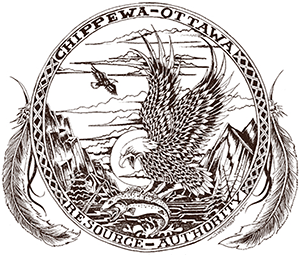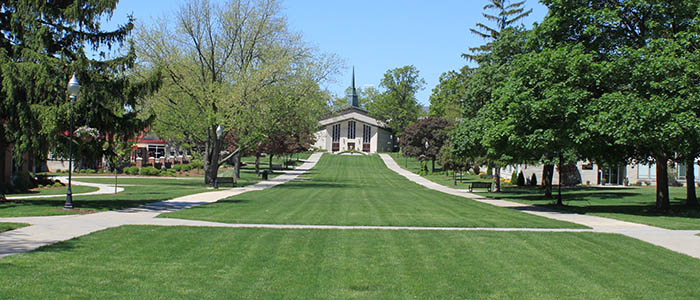On March 27, 1960, the last regularly scheduled passenger train powered by a steam locomotive pulled away from the Grand Trunk Western Union Depot in Durand. The depot was once the largest in rural Michigan and one of the biggest in a small town anywhere in the country. It featured a large waiting room, a dining room and a lunch counter.
Source: Michigan Every Day
Before the famous Delmonico’s restaurant opened in New York City in 1845, there were no restaurants in the United States as we know them today. There were, however, “eating houses.” Detroit had its share, usually attached to saloons, where food was served, often to encourage more drinking.
Eating houses featured specialties like “all-you-can- eat” oysters or green turtle soup; they usually announced “a good accommodation for victuals” such as soup, potatoes, beef, ham and so forth. Nevertheless, complaints about the food were common. With the famous French chef and cooking instructor Professor Pierre Blott moving to New York City and becoming America’s first celebrity chef by 1865, Detroit newspaper editorials hoped that students of chef Blott could “relieve the country from the reproach of having but one gravy.”
The article by Bill Loomis, “Dining and drinking in Old Detroit; From nickel meals to elaborate dinners, Detroit’s restaurants and saloons were the hangouts of their day”, Detroit News, January 22, 2012, is no longer available online.
But the photos are.
Curtis Hertel, Sr. the last Michigan House Speaker before term limits swung into effect, was widely remembered Monday for his ability to work in a bipartisan manner with Republicans during an historic 55-55 party split in the House.
Hertel labored alongside Paul Hillegonds as co-speaker from 1993 through 1994 and held the Speakership outright from 1997 through 1998.
Hertel Sr. – the 64th Michigan Speaker of the Michigan House – was first elected to the House in 1980. In all, Hertel served in the Michigan House from 1981 until 1998.
The hallmark of Hertel Sr.’s service was undoubtedly the unique shared power relationship he had with Hillegonds. Following that two years of shared power, both men were widely respected by Lansing insiders for their ability to work across the aisle on substantive policy developments, despite political differences.
The Hertel family is well known for their public service in Michigan political circles, with all three brothers, Curtis Sr., John, and Dennis serving in political offices throughout their career. John Hertel served in the Michigan State Senate, representing the 2nd District from 1974 to 1982, and Dennis Hertel served in the Michigan House of Representatives, representing the 14th District from 1975 to 1980, and then as US Congressman from the Michigan 14th District from 1981 to 1993. Hertel Sr.’s son, Curtis Jr., is serving his first term in the Michigan State Senate.
During Hertel’s speakership he hosted the last President of the United States to visit the Michigan Capitol when then-President Bill Clinton addressed a joint session of the 89th Michigan Legislature on March 6, 1997. Prior to Clinton’s 1997 address the last President to speak at the state capitol was Theodore Roosevelt.
Hertel Sr. was a proud graduate of Wayne State University.
Source : “Hertel Remembered for Ability To Work With Others”, MIRS, March 28, 2016.
Acting upon a petition presented to him in 1819, Territorial Governor Lewis Cass issued a proclamation setting off and naming St. Clair County, created from part of Macomb County. The county was named after Arthur St. Clair, the first governor of the Northwest Territory.
Source: Michigan History
On March 28, 1836, in Washington D.C., a few dozen Michigan Anishinaabe Ogemuk signed a treaty with the United States, represented by Henry Schoolcraft.
The treaty continues to serve as the original formal acknowledgment of the sovereignty of the Indian tribes represented there, many but not all of which are currently federally recognized.
In exchange for 1/3 of the state (eastern end of upper peninsula and northwestern lower peninsula), the tribes were entitled to hunt and fish as long as they remained.
But much later, in the 1960s, the state of Michigan started heavily regulating commercial fishermen, including tribes, limiting where and how they fished.
John Bailey was a tribal leader at the time and says the regulations hurt the tribes.
Inspired by the Civil Rights movement in the south, tribes began using non-violent civil disobedience to protest the regulations. They ignored state fishing restrictions and said to the authorities, come arrest me.
According to John Bailey, a lot of whites didn’t react well.
One of the groups actually took pictures of Indian fisherman and flooded the state with wanted posters: Spear an Indian, Save a Trout. We had guns pulled on us. We had women verbally and physically assaulted.
White commercial and sports fisherman thought traditional nets used by the tribes would lead to overfishing, destroying the fishing economy.
The fight came to a head in 1979, when the tribes went to court. They pulled out that treaty from 1836. And because of that they won. The courts said: These tribes, they own a part of that lake and the water and the fish in it, too. That’s why tribal fisherman can still fish today.
Chippewa Ottawa Resource Authority (CORA) gathers all 1836 Treaty fishing tribes under it’s mantle, including:
- Bay Mills Indian Community
- Grand Traverse Band of Ottawa and Chippewa Indians
- Little River Band of Ottawa Indians
- Little Traverse Bay Bands of Odawa Indians
- Sault Ste. Marie Tribe of Chippewa Indi
Sources:
Emily Bingham, “How an 800-mile canoe trip starting at an Up North beach became a turning point in Michigan history“, MLive,January 15, 2018.
Treaty of Washington, 1836 wikipedia entry
Chippewa Ottawa Resource Authority (CORA)
Turtle Talk, March 28, 2011.
n 1840, a group of disenchanted Michigan Methodists seceded from the Michigan Episcopal Church and organized themselves in a conference bearing the name Wesleyan Methodist Connection. This led to the founding of the Leoni Theological Institute in 1848 near Jackson, Michigan. Eventually, the school’s name was changed to Michigan Union College. In 1857, the Reverend Asa Mahan became pastor of the Plymouth Congregational church in Adrian. Hearing the Michigan Union College was in financial trouble and upset at the atmosphere in Leoni (‘whiskey town’), Mahan worked to move the school to Adrian. To keep local residents from discovering the hegira, the school’s library and its students were transported under the cover of the night to Adrian where the name Adrian College was adopted. By 1862, Adrian College had a student enrollment of 82 women and 133 men.
Today, Adrian College is a private, co-educational liberal arts college conferring bachelor’s degrees in 40 academic majors and programs. The college is located in the city of Adrian, Michigan, a drive of approximately 45 minutes northwest of Toledo, Ohio, or 45 minutes southwest of Ann Arbor or 90 minutes southwest of Detroit. The 100 acre (0.4 km²) campus contains newly constructed facilities along with historic buildings. The college features a variety of athletic programs as well as a theatre department. Adrian College is affiliated with the United Methodist Church and is accredited by the North Central Association of Colleges and Schools in the United States. The fall 2013-14 student headcount was 1,649 students

Sources :
Michigan is Amazing
Michigan Every Day.
Detroit saloonkeepers are upset with Governor Osborn. During the election preliminaries two years ago, he swore to be their friend, but now is courting those who favor prohibition!
NOW KNOW GOVERNOR’S TREACHERY: SALOONKEEPERS OF DETROIT, SINCE OSBORN’S ATTACK, RECALL HOW HE SOUGHT THEIR VOTES IN 1910 AND DECLARED SELF THEIR FRIEND. HALL RENTED BY KNOX FOR SPEECH AT ONE MEETING, AUDITORS DECLARE, HE DRANK BEER, SPOKE IN FAVOR OF DRINKING AND SAID LIQUOR WOULD BE GOOD FOR THE “DRYS.” Detroit Free Press, March 28, 2001
Note : The Main Library now provides the MSU community online access to the historical Detroit Free Press from 1858 through 1922.
Detroit Red Wings star Gordie Howe suffered a near-fatal injury after he tried to slam into Toronto Maple Leafs captain Ted (Teeder) Kennedy during the opening game of the playoffs at Olympia Stadium on March 28, 1950.
Howe crashed into the boards headfirst and had to be carried away on a stretcher as fans in the stands silently watched, shocked.
It was three days before his 22nd birthday.
The brain hemorrhage Howe suffered landed him in critical condition at Harper Hospital; he also had a broken nose, a shattered cheekbone and a seriously scratched right eye. His mother was summoned to his side.
Emergency neurosurgery to relieve the pressure saved his life, along with some time in an oxygen tank. According to legend, Howe apologized to coach Tommy Ivan.
The NHL found allegations that Kennedy heat-butted him unfounded.
The Red Wings lost that night, 5-0, but went on to win the series, 4-3, and, ultimately, the Stanley Cup against the New York Rangers, 4-3.
For the full article, see Zlati Meyer, “Flashback: Mid-game accident left Gordie Howe close to death”, Detroit Free Press, March 22, 2015.
On March 28, 1977, the worst outbreak of botulism in the nation’s history occurred when 59 people contracted the disorder after eating food at a Pontiac Mexican restaurant. The source : home canned peppers.
Though all but two of the victims were hospitalized — some in critical condition — through quick identification of the toxin, which was one of the deadliest poisons known, fatalities were averted.
Bryan Times via Google News, April 4, 1977.
Source: Mich-Again’s Day
“Michigan State was doing well in the NCAA basketball tournament back in 1979. One day, [Sportscaster] Tim Stoudt and I were on a street corner in downtown Lansing talking. ‘What could we do if they went to the Final Four?’” Duane Vernon recalls. The optimistic men approached coach Jud Heathcote, and he agreed to a parade if the team made the Final Four, so they got to work planning the march. Two days after the Spartans won it all against Larry Bird and the Indiana State Sycamores, the team was joined by students, family, friends and fans in a celebratory strut from East Lansing to the Capitol, where the State Legislature recognized the team.
Source : Laurence Consentino, ” The Long March : Lansing’s Sesquicentennial Parade forms Up with its Forerunners”, Lansing City Pulse, May 13-10, 2009.
